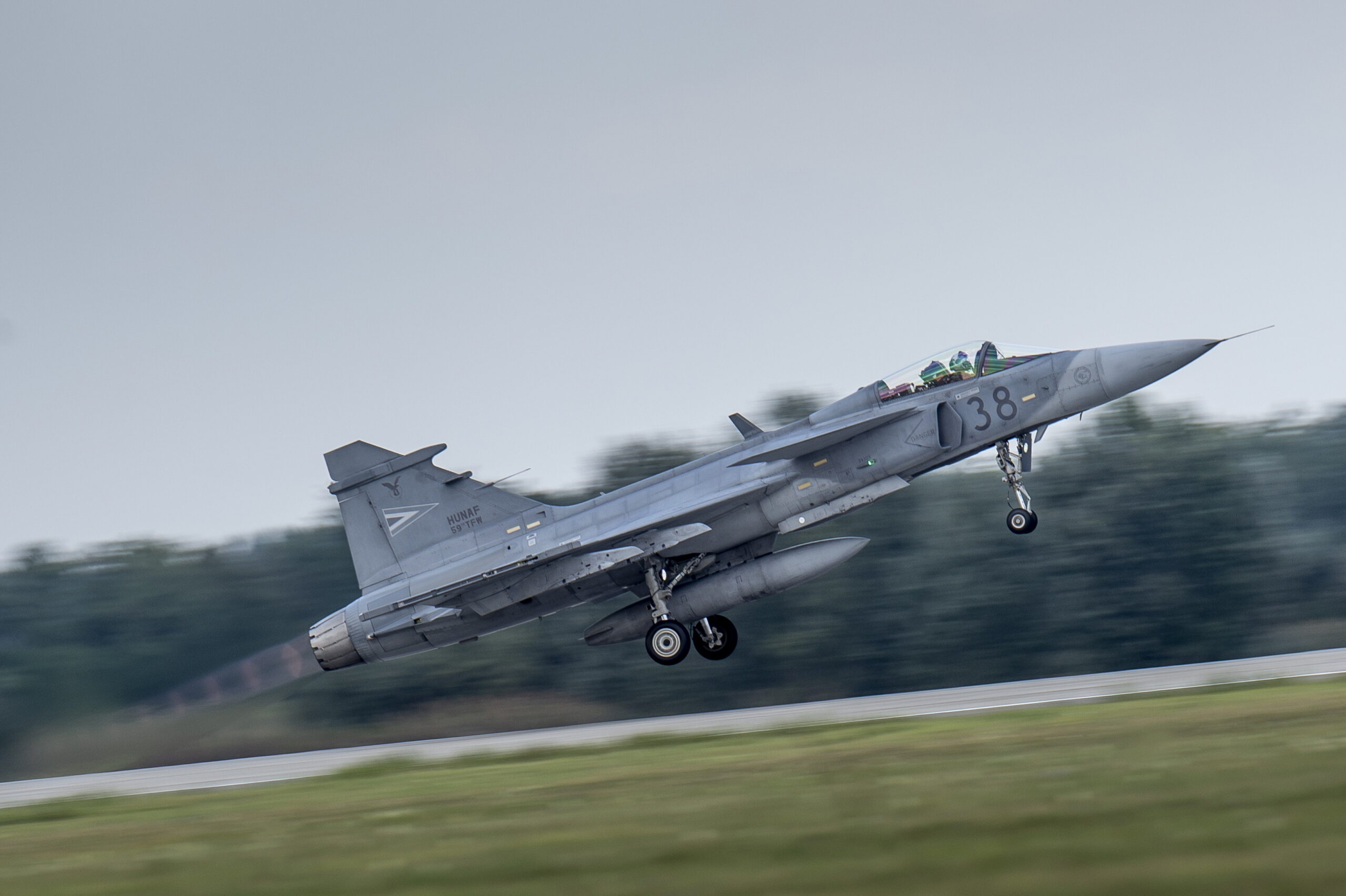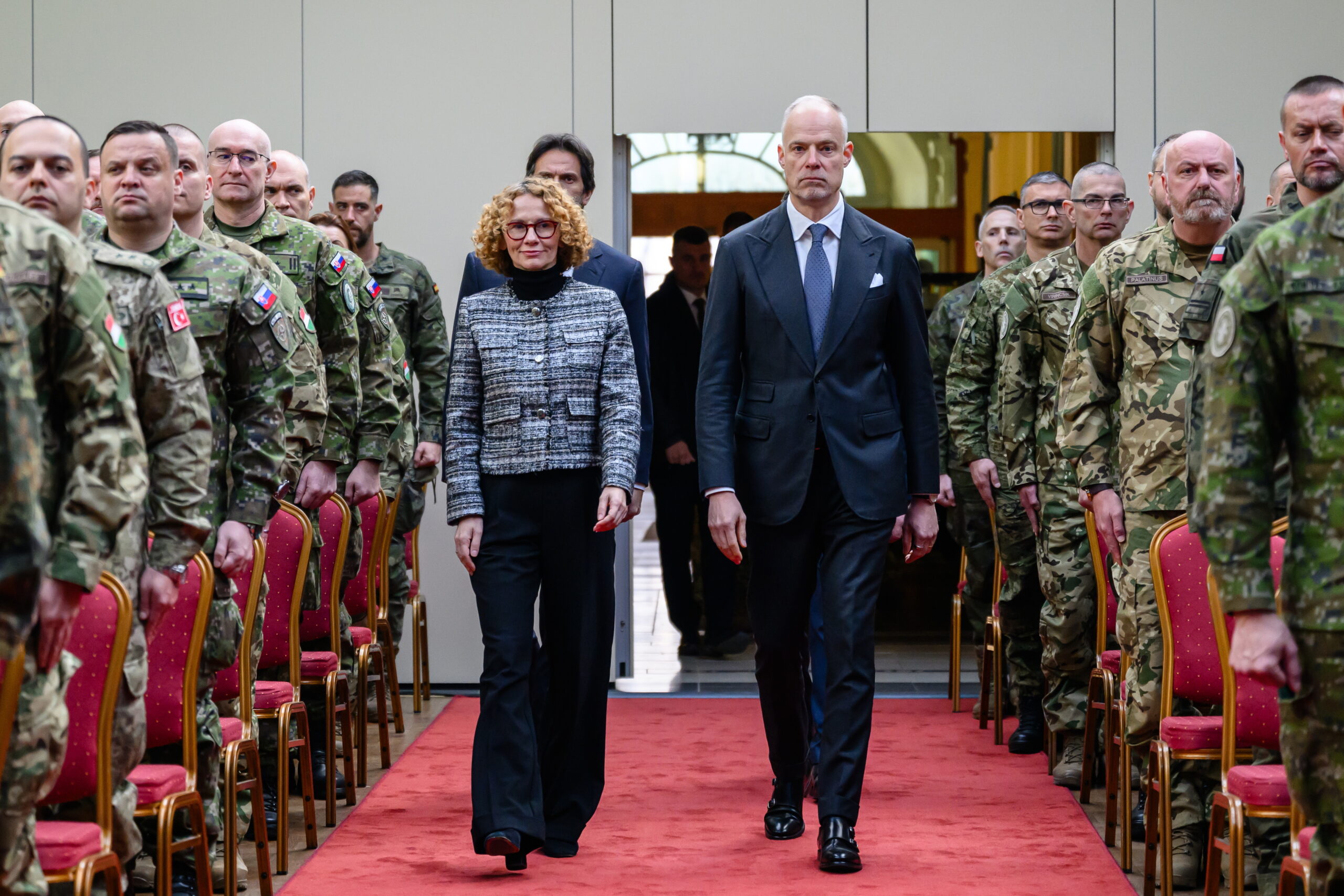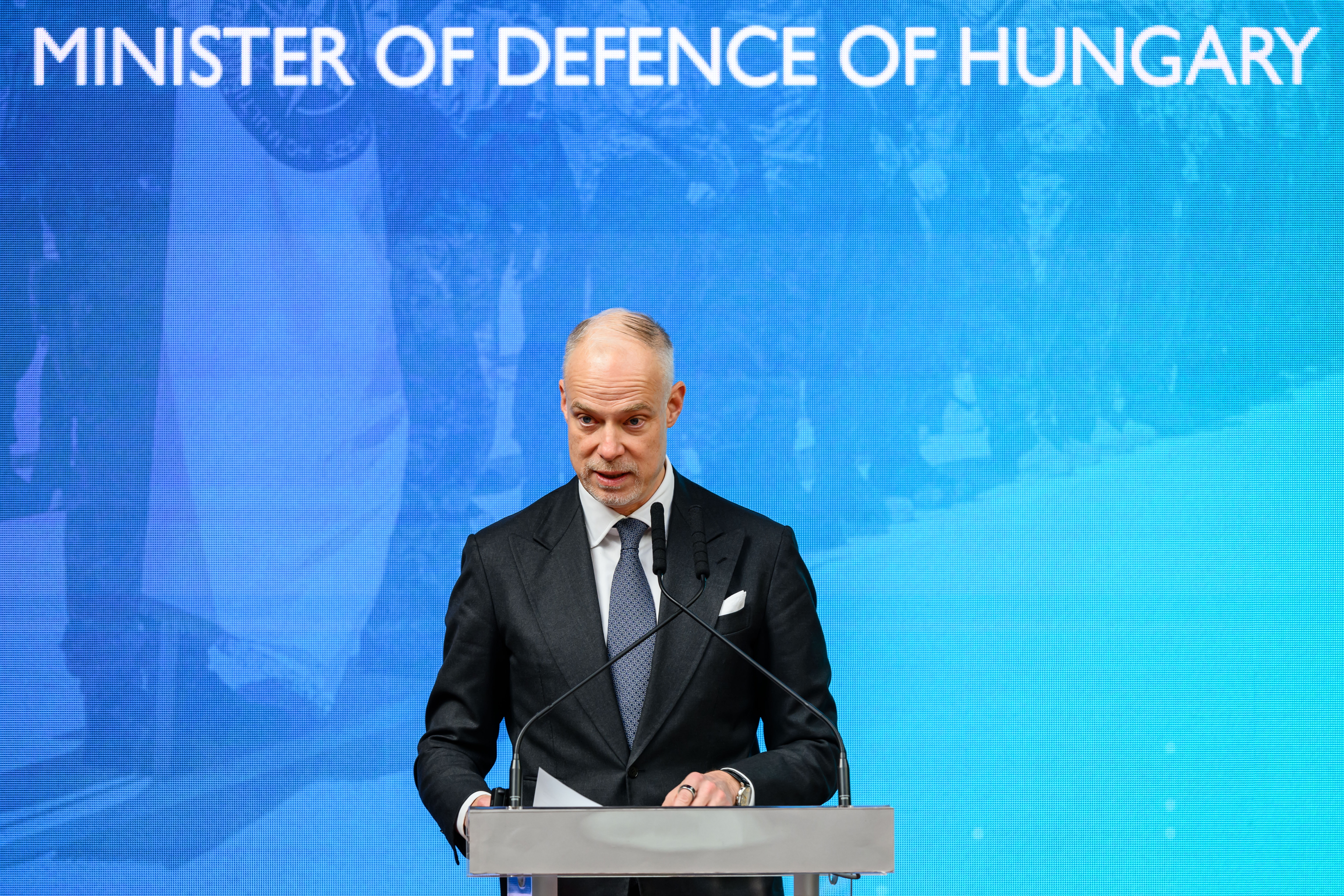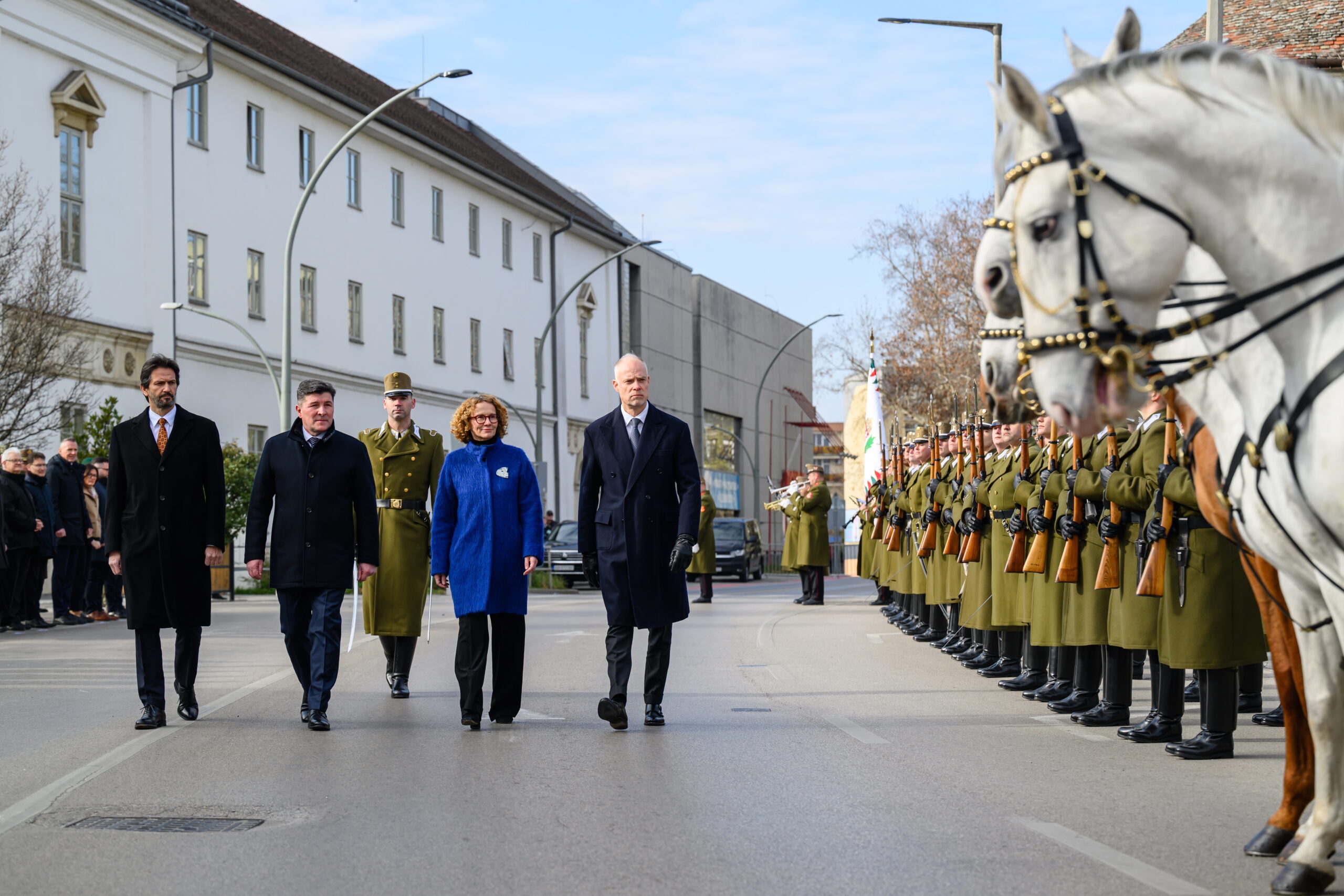
We are at the forefront of NATO in spending almost half of our defense budget on development, said the Foreign Minister.Continue reading

“Strength lies not only in weapons or numbers, but also in the readiness and will to defend what we value,” the Defense Minister said on Monday, as the HQ Multinational Division Centre deployed in Székesfehérvár (70 kilometers from Budapest) reached full operational capability.
Kristóf Szalay-Bobrovniczky recalled that they had come a long way together since the idea was conceived: a few years ago, three Central European nations, Hungary, Slovakia, and Croatia, decided to create a multi-national division command, jointly filling “the command and control gaps” in the region. The minister stressed that
by achieving full operational capability, the division will be ready and able to participate in the command and control of NATO operations in the region in the event of any potential crisis or conflict.
He added that this will enhance deterrence and rapid response capabilities, ensuring an immediate and coordinated response in the event of a threat.

Defense Minister Kristóf Szalay-Bobrovniczky. Photo: MTI/Vasvári Tamás
Szalay-Bobrovniczky pointed out that this region is not simply part of the Eastern flank, but is also geopolitically located at a key crossroads between North and South, East and West. The minister noted that the security environment has become even more fragile since the decision to establish the command, which justifies the need to continue the efforts made so far and to take further steps.
NATO Deputy Secretary General Radmila Shekerinska described the achievement of the full operational capabilities of HQ MND-C (Headquarters Multinational Division Centre) as a milestone in the life of the North Atlantic Alliance, given the critical role of the Centre in protecting NATO’s eastern flank, which means the peace and security of one billion people.
Echoing the message of the Secretary General, she said that there can be no rest, there must be an increase in defense budgets and the production of military equipment, because “we must protect our people.”
I was honoured to join the ceremony declaring #NATO’s Headquarters Multinational Division Centre fully operational in #Hungary. It plays a critical role in defending our eastern flank, sending a clear signal that our deterrence & defence are strong.https://t.co/X8cpgUABhq pic.twitter.com/1xH6ZfxWjg
— Radmila Shekerinska (@DepSecGenNATO) February 10, 2025
Robert Kaliňák, Slovak Defense Minister, said that the current geopolitical situation is very unstable and unpredictable, which makes cooperation between the three framework nations critical.
Tomislav Galic, State Secretary at the Ministry of Defense of Croatia, said that achieving full defense capability has created a sense of security that should not be underestimated, but should be further strengthened by exploiting potential capabilities.
General Guglielmo Luigi Miglietta, Commander of the Allied Joint Force Command (JFC) Brunssum, stressed that today’s transfer of the command to the battlegroups is more than a military qualification, it is a strong symbol and commitment to deterrence and defense. He noted that the centre is now ready to carry out its mission in multiple regions in multiple modes of operation.
Major General Tibor Králik, Commander of the Central European Multinational Division Centre, stressed that
they are able to meet both technological and global security challenges with precision and in full accordance with NATO strategy.
He believed that they would only be able to meet the challenges of the future if they could constantly improve their capabilities.

L-R: Robert Kaliňák, Tomislav Galic, Radmila Sherekinska, Kristóf Szalay Bobrovniczky. Photo: MTI/Vasvári Tamás
In addition to the three Framework Nations (Croatia, Hungary and Slovakia), the Centre is staffed by seven other NATO nations (Poland, Germany, Italy, Romania, Spain, Slovenia, and Turkey). The posts of Commander, Deputy Commander, and Chief of Staff are filled on a rotational basis, with the current Commander of the organization being Slovakian, the Deputy Commander Hungarian, and the Chief of Staff a Croatian General.
Via MTI, Featured photo via MTI/Vasvári Tamás